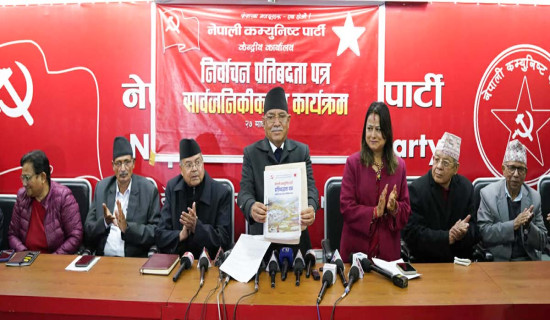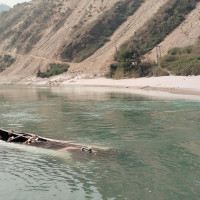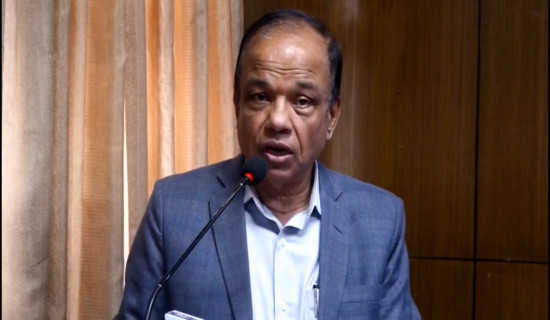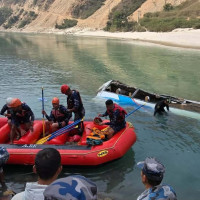- Wednesday, 11 February 2026
Bail System In Need Of Overhaul
The bail system is an important component of the criminal justice system. When a person is arrested, it has to be decided whether to proceed with trial proceedings by holding the person in judicial custody or by releasing them on bail. Under the bail system, an accused person is released pending a trial under the conditions set by the court. A bail may be in the form of cash, a mortgage of property, a bank guarantee or personal recognisance. The accused is obliged to appear in court as and when required. The bail amount may be returned to the accused if they appear in court as required. In most cases, the bail amount may be returned at the end of a trial if all court appearances have been made, regardless of whether the accused is found guilty or not.
If they fail to appear in court as required, the bail amount may be forfeited or the accused may be remanded to judicial custody. In Nepal, granting bail falls within the discretion of the investigating officer or the court. Not all crimes are bailable. Less serious or non-violent crimes are usually bailable. The investigating officer or court can grant bail in such cases. Non-bailable crimes include petty theft, pickpocketing, defamation, a public nuisance and the like. On the other hand, non-bailable crimes include serious, violent or heinous crimes. Crimes against the state are always non-bailable. Only the court can grant bail in such cases.
Public safety
The court assesses various risks such as fleeing of the accused, harm to public safety or the victim(s), the possibility of tampering with or destroying evidence, influence on witnesses and so on. Murder, rape, human trafficking, kidnapping and the like are non-bailable crimes. The basic thrust of the bail system is to protect the rights of the accused as they also have human rights and dignity. Article 20 of the Constitution of Nepal has guaranteed the right to justice, presumption of innocence until proven guilty and the right to a fair trial. Bail is treated as a fundamental right and should not be denied when there is no strong evidence entailing pre-trial detention.
This is also backstopped by international human rights standards, including the Universal Declaration of Human Rights and the International Covenant on Civil and Political Rights. These documents assert that an accused is presumed innocent until proven guilty and that pre-trial detention should be taken as a last resort. The Supreme Court has also set a clear precedent: bail should still be granted if there is no flight risk, no danger to public safety or no strong evidence justifying pre-trial detention. But the bail system is not properly implemented. District courts often fail to follow this precedent for various reasons: pressures from media trials, NGO influence or fear of harsh measures from the Judicial Council.
In many countries, there is a clear distinction between bailable and non-bailable crimes. In Nepal, distinguishing bailable and non-bailable crimes often depends on the discretion of the court. The principle of presumption of innocence until proven guilty is hardly followed. Whenever a person is arrested on a certain charge, they are treated as guilty, thus violating the principle of presumption of innocence until proven guilty. This adversely affects their human rights and dignity as they have to suffer social stigmas and emotional trauma. In many cases, bail is denied and the accused is treated as if they were guilty. The accused is sent to judicial custody, not because there is strong evidence but because of the serious charges levied against them.
This violates their fundamental rights and the right to a fair trial. Significant harm may have been done before a trial begins or a final verdict is announced. Just accusing someone of a crime does not make them a criminal. They are innocent till they are proven guilty. However, there is a negative perception about the accused. Further, social media carries out a blitz against the accused, making their life virtually unlivable, thus undermining their fundamental rights and dignity. So it is necessary to change public perceptions about the accused.
There are often delays in conducting trials and bringing in verdicts. When bail is denied in a bailable case, there may be unnecessarily excessive detention. The accused may be treated as guilty. And much harm may have been done before a final verdict is announced. This may have multiple impacts on the accused: loss of jobs, social stigmas, emotional distress, a feeling of guilt and the like. There are cases of corruption everywhere in Nepal. In grave cases involving influential people, bail is often granted. And the bail amount often falls far short of the amount embezzled. The case is not immediately settled; it may run for years. So the accused has the liberty of roaming freely by posting a bail amount worth peanuts vis-à-vis the embezzled amount.
Flawed system
It follows that the bail system seems flawed. The court should base its bail decision on solid evidence, not on the gravity or severity of the offence mentioned in a charge sheet. The court should follow strict guidelines to ensure that bail is granted to the accused who deserves it. The practice of granting bail not based on the nature of the crime or strong, convincing evidence but under the influence of political leaders or other influential people, should come to a halt.
For this, the court should be made a haven where decisions can be made without fear or prejudice. People should be enabled to experience real justice, which is possible when the principle of presumption of innocence until proven guilty holds, a fair trial prevails, fundamental rights and dignity of the accused are respected and the bail system is propitiously enforced.
(Maharjan has been regularly writing on contemporary issues for this daily since 2000.)





-square-thumb.jpg)


-square-thumb.jpg)








